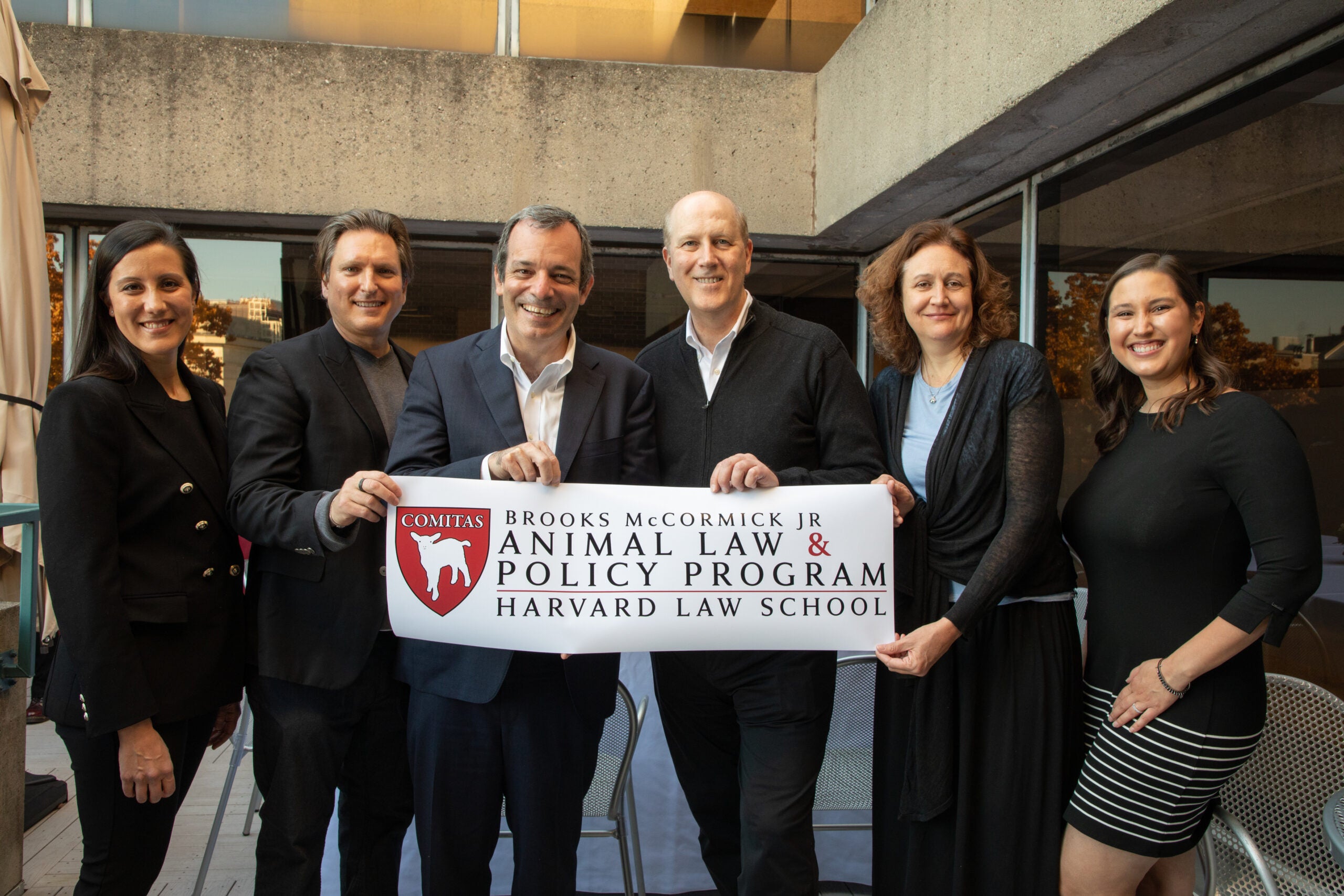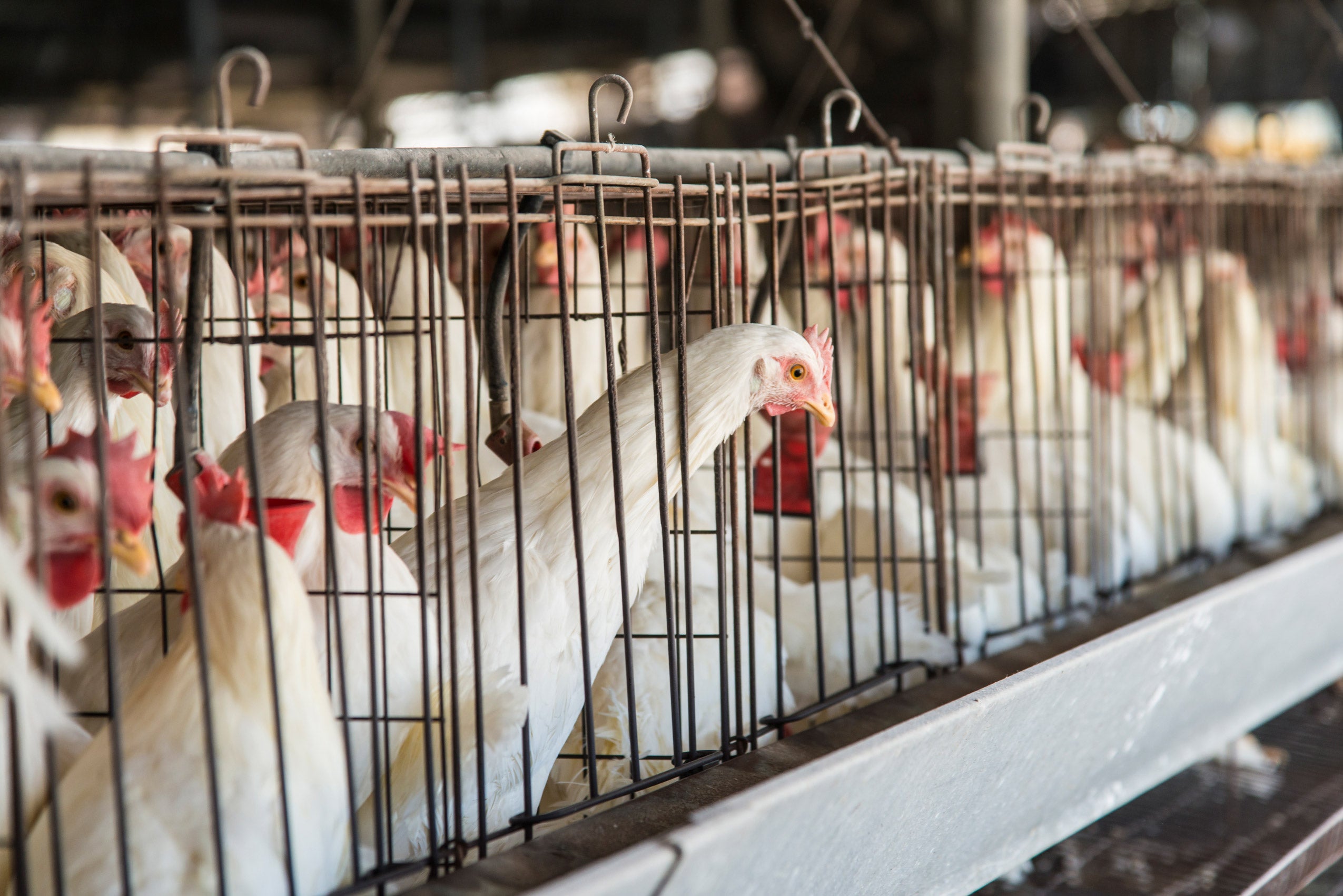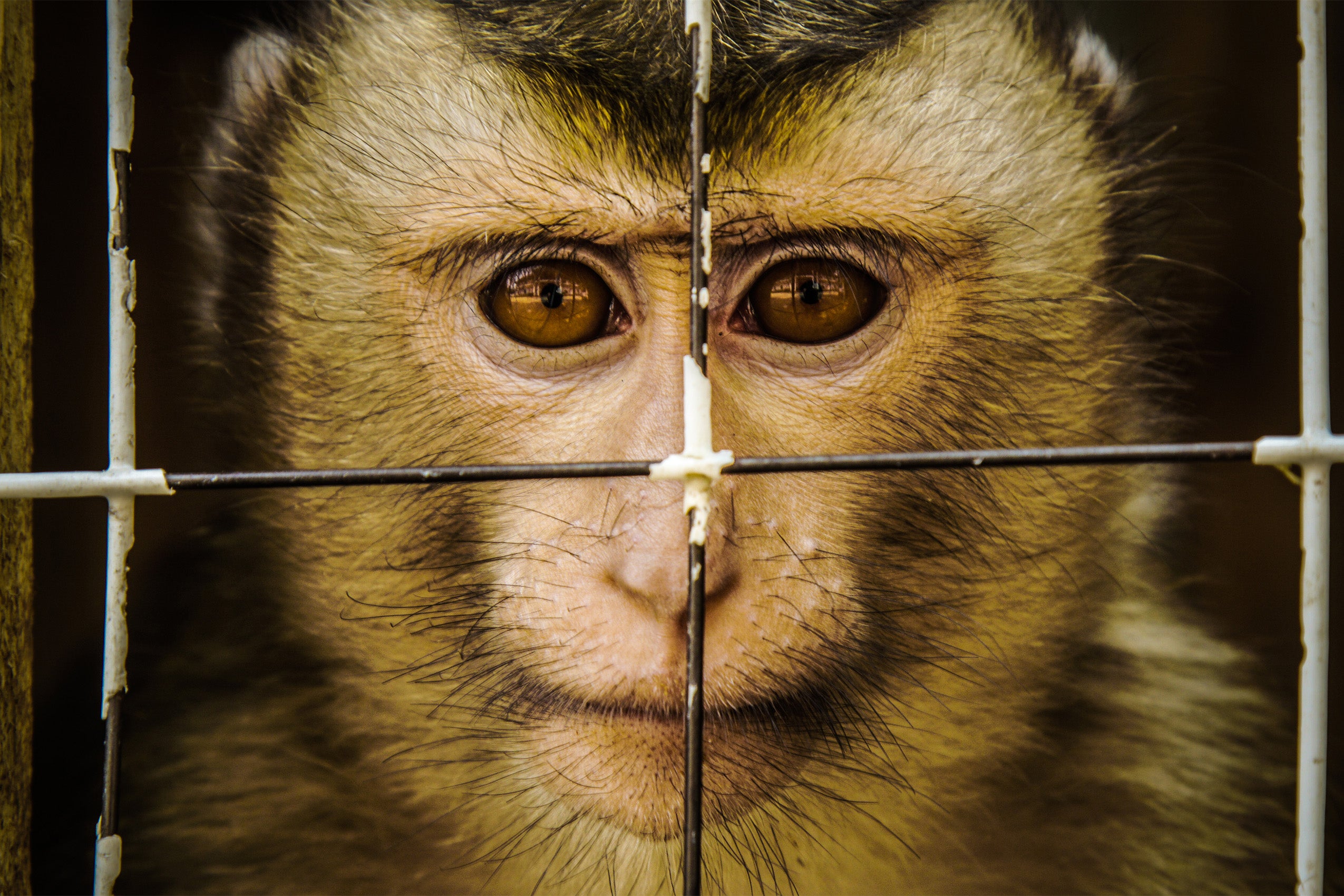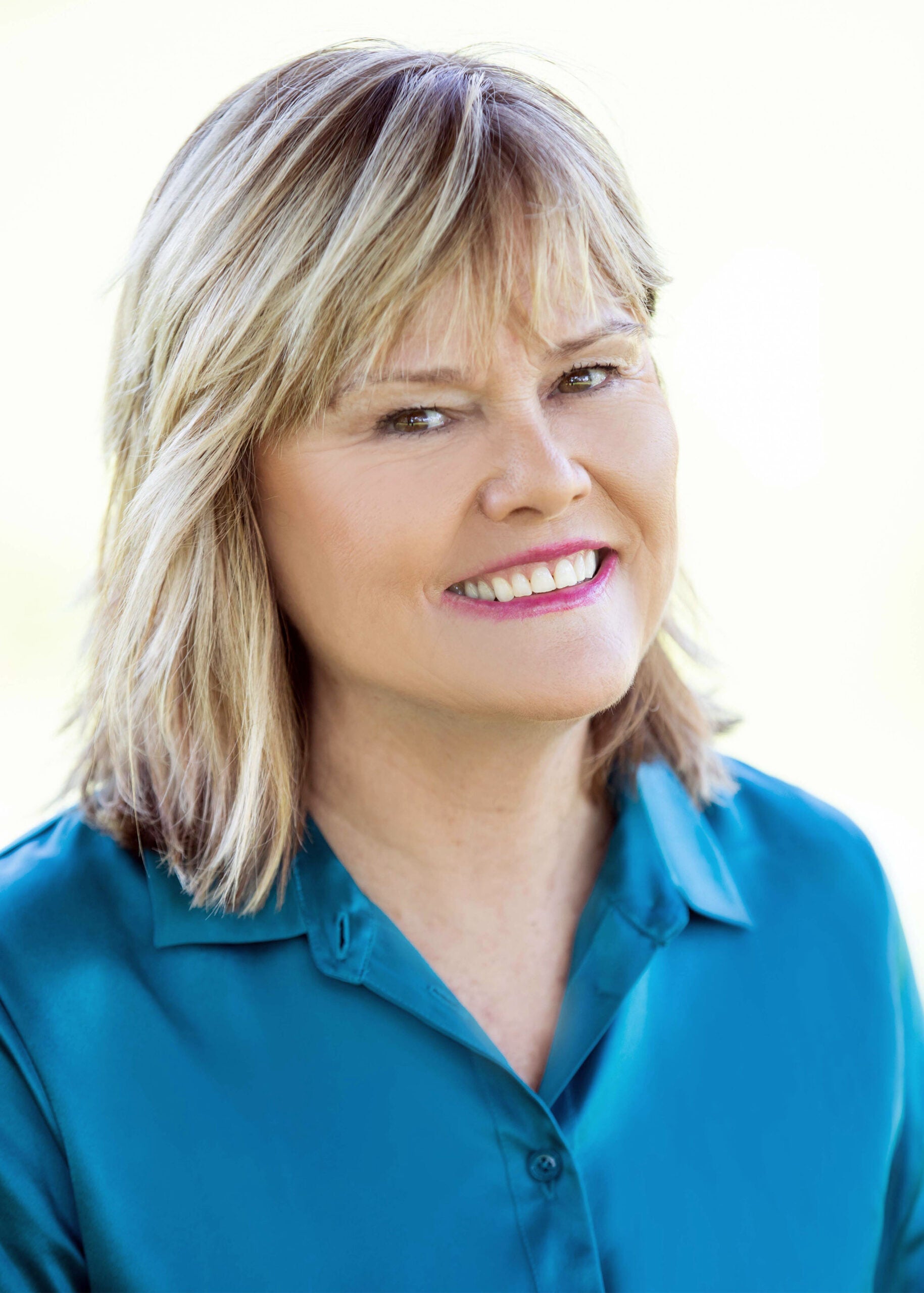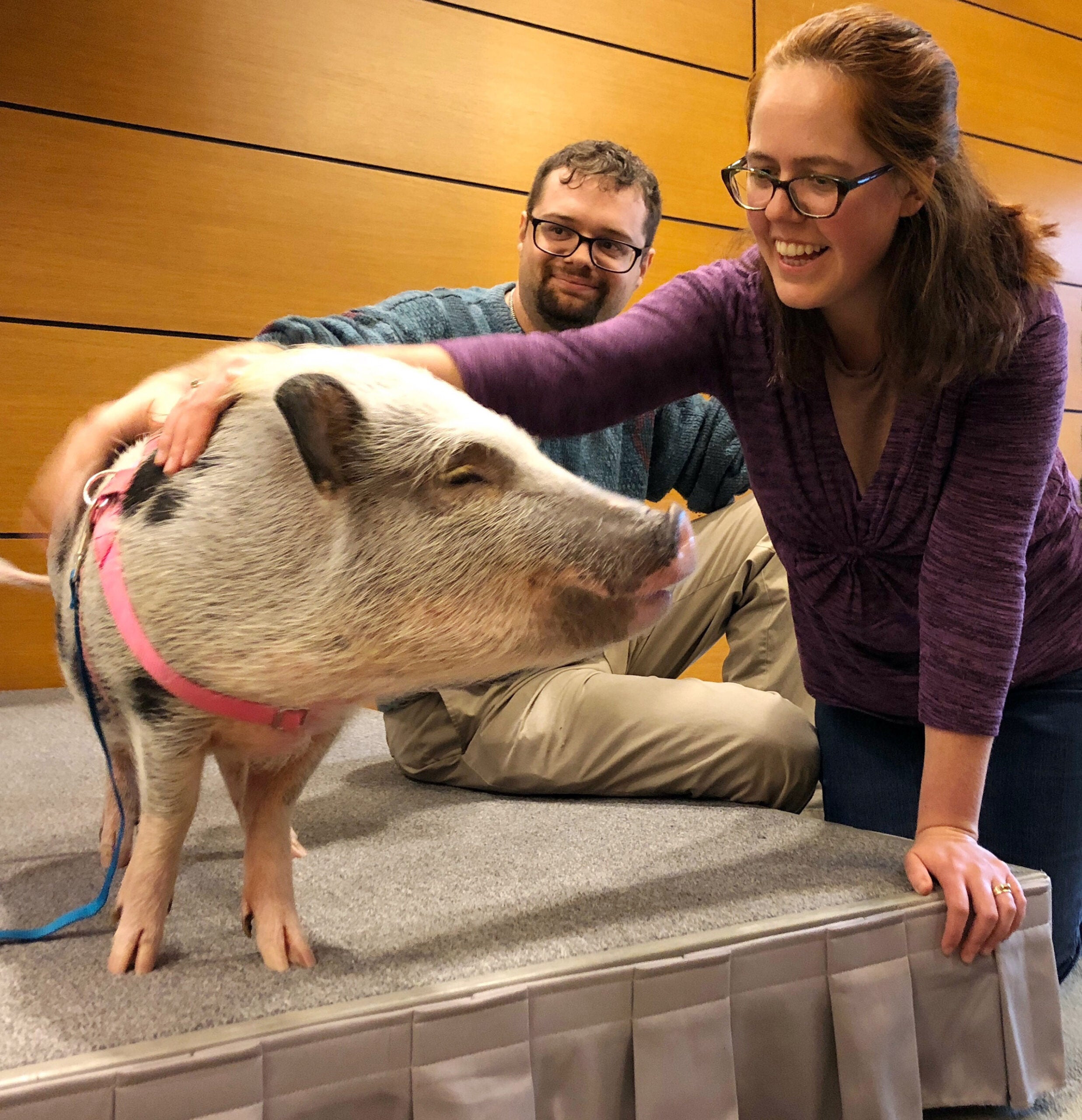People
Katherine Meyer
-
Octopuses Don’t Have Backbones — or Rights
August 29, 2022
Lab rats have rights. Before researchers in the United States can experiment on the animals, they need approval from committees that ensure they follow federal…
-
$10 million endowment established for the Harvard Law School Animal Law & Policy Program
November 10, 2021
Harvard Law School today announced the establishment of a $10 million endowment for the Animal Law & Policy Program, thanks to a gift from the Brooks Institute for Animal Rights Law and Policy.
-
Animal Law & Policy Clinic assists in a victory for the Animal Welfare Institute and Farm Sanctuary
October 15, 2021
The Animal Welfare Institute (AWI) and Farm Sanctuary, represented by Harvard Law School’s Animal Law & Policy Clinic, scored a victory this week when a judge ruled that a lawsuit filed against the USDA's Food Safety and Inspection Service will move forward.
-
‘They’re lying to the public’
June 4, 2021
The Harvard Law School Animal Law & Policy Clinic made a startling discovery about a USDA policy while working to promote better standards of care for primates in medical research facilities.
-
In February 2019, the U.S. Department of Agriculture (USDA) made a significant—and apparently secret—change to how it oversees laboratory animal welfare, Science has learned. Instead of fully inspecting all of the nearly 1100 facilities that house monkeys, rabbits, and other creatures used in biomedical research, it mandated partial “focused” inspections for labs accredited by a private organization of veterinarians and scientists called AAALAC International. Such partial inspections violate the Animal Welfare Act, argues Katherine Meyer, director of Harvard University’s Animal Law and Policy Clinic, which discovered the change after law student Brett Richey combed through more than 1000 pages of internal USDA documents. The federal law states that USDA must enforce “minimum requirements for handling, housing, [and] feeding” of research animals, as well as adequate veterinary care, Meyer notes. “How do you ensure that labs are in compliance with those standards if USDA is doing incomplete inspections?” ... Meyer argues that AAALAC itself is problematic. She and others in the animal advocacy community have long contended that the organization is not an appropriate substitute for USDA because it only inspects institutions every 3 years, is made up of many of the same people that run animal research facilities, and—unlike USDA—schedules inspections in advance rather than showing up unannounced.
-
Netflix’s “Tiger King” burst into a new world of pandemic streaming and gave viewers exotic animals, personal and professional drama, and a man with a mullet’s attempt to launch a political career in Oklahoma. But years before the theatrics, a legal showdown was brewing between zoo owners featured in the show and animal activist groups that seek to shut down the cub-petting industry with the help of the federal government. Jeffrey Lowe and Timothy Stark separated endangered tiger cubs from their mothers at too early an age to create photo opportunities with a paying public, according to such groups as People for the Ethical Treatment of Animals and the Animal Legal Defense Fund...The case against the Lowes is a “breakthrough moment,” said Katherine Meyer, visiting assistant clinical professor of law and director of the Animal Law and Policy Clinic at Harvard Law. Meyer was involved in one of the first lawsuits brought under the act to protect animals in captivity. PETA alleged in 1993 that Bobby Berosini had abused endangered orangutans for an act at his Las Vegas nightclub. The U.S. Fish and Wildlife Service eventually revoked the facility’s captive-bred wildlife permit. Environmental groups have brought several cases throughout the past decade using the same theory that the ESA can protect individual, captive animals, according to Meyer.
-
As fire burns, activists sneak into Point Reyes to bring water to parched elk. Should they?
September 1, 2020
As darkness fell and a thick Pacific fog crept in over the Point Reyes peninsula on Sunday, a small band of animal activists waited for a National Park Service official to leave his check-post along Pierce Point Road. He was there to prevent people from going deep into the National Seashore, where forests are aflame, and a skeleton crew of park service employees are otherwise tending to a 3,000-acre conflagration burning at the park’s southern end. At 6 p.m., as his shift came to a close and he drove away, the small bucket-brigade crept in. They were transporting roughly 200 gallons of water to the park’s tule elk, who they say are dying from dehydration — and unable to reach other water sources because of a fence around their preserve — as drought conditions worsen in the region...Up until this week, Dawes’ organization and other local activists were the main ones focused on the plight of this year’s elk herd. But on Monday, a group with a track record of aggressive environmental litigation, the Center for Biological Diversity, urged the park service to provide water to the elk and remove an eight-foot high wire fence that runs across the peninsula, preventing the free movement of the elk. “Unlike the privately owned cattle that have unrestrained access to water sources in this area, the elk are protected by federal law that requires the Park Service to ‘conserve’ them for the public and future generations,” said Katherine Meyer, director of Harvard Law School’s Animal Law and Policy Clinic in a statement for the organization. “They should not be denied access to the water they need to survive.”
-
National Park Service Pressed to Tear Down Elk Barrier, Ensure Water Supply for Point Reyes Elk: Conservationists Fear Another Elk Die-off Due to Fence, Drought
September 1, 2020
In response to reports of tule elk dying amid an ongoing drought, the Center for Biological Diversity and Harvard Animal Law and Policy Clinic today demanded that the National Park Service remove a fence from Tomales Point in northern Point Reyes National Seashore that confines elk on a peninsula with inadequate water. “Point Reyes is a national park, not a zoo. The park’s native wildlife shouldn’t be confined or prevented from finding water and food,” said Jeff Miller, a senior conservation advocate at the Center for Biological Diversity. “The Park Service should tear down the Tomales Point fence so that all elk in Point Reyes National Seashore are able to thrive and find adequate water during a drought.” Tomales Point elk are prevented from naturally migrating to reliable water sources by an eight-foot fence erected and maintained by the Park Service to appease cattle ranchers with grazing leases in the park. Cattle directly south of the fence have access to plentiful water sources, including naturally flowing streams. “Unlike the privately owned cattle that have unrestrained access to water sources in this area, the elk are protected by federal law that requires the Park Service to ‘conserve’ them for the public and future generations,” said Katherine Meyer, director of Harvard Law School’s Animal Law and Policy Clinic. “They should not be denied access to the water they need to survive.” Tule elk in the fenced Tomales Point Elk Reserve depend largely on water in former cattle stock ponds to survive the dry summer and fall seasons. All but one of these ponds are dry or nearly dry. Conditions are similar to 2012-2014, when more than 250 elk — nearly half of the Tomales Point elk population — died from a lack of water. It appears that at least six elk have recently died on Tomales Point, with the causes of death not yet disclosed.
-
“The very test under the Endangered Species Act is supposed to be ‘What is the best available science?'”
August 12, 2020
Katherine Meyer, director of the Harvard Animal Law & Policy Clinic, corresponded with Harvard Law Today about the clinic's recent Supreme Court amicus brief filing in a Freedom of Information Act case brought by the Sierra Club, concerning access to information regarding the adverse impacts of federal actions on endangered and threatened species.
-
Right to farm: Indiana families ask U.S. Supreme Court to weigh in on case over factory farm
July 24, 2020
A local environmental group believes that Indiana’s Right to Farm Act violates the federal constitution, and they are asking the U.S. Supreme Court to weigh in. The Hoosier Environmental Council has teamed up with a Harvard Law School Clinic and together they filed a petition with the nation’s highest court on July 17 asking it to review the case. This petition comes nearly 5 years after this case first began in an Indiana trial court, and roughly 7 years after an 8,000-hog factory farm moved in next to two Hendricks County couples and allegedly began causing harm...Right-to-farm laws started to grow in prominence around the nation in the 1970s and 1980s, and Indiana’s was enacted in 1981. These laws were enacted as a way to protect existing farmers from urban sprawl as city-dwellers moved to the countryside unprepared for the smells of agriculture. Such newcomers could not sue for nuisance as they moved to or “came to the nuisance,” said Andy Stawasz '21, a Harvard Law student who worked on the petition to the Supreme Court...Prior to starting the CAFO, the land did undergo a change: In 2013 it was rezoned from “agriculture residential” to ”agriculture intense.” And prior to the 2005 amendment, Katherine Meyer feels confident that this change would have been grounds for nuisance claims under the law. “It would have been cut and dry because they were there first and then the nuisance came in,” said Meyer, the executive director of Harvard’s Animal Law and Policy Clinic that worked on the petition with Ferraro. “Now they can’t sue for damages and they can’t get the value out of their house. It just doesn’t seem fair, let alone the legal and constitutional issues.”
-
Harvard Law School Launches Animal Law And Policy Clinic
August 30, 2019
Harvard Law School has announced the launch of its new animal law and policy clinic, as the number of institutions in the states offering Animal Law courses skyrockets. The new clinic, part of the school's Animal Law & Policy Program, covers a range of issues 'affecting farmed animals, wildlife, animals in captivity, and the overarching threat to all forms of life from climate change'...The clinic will be led by Visiting Assistant Clinical Professor Katherine Meyer and Clinical Instructor Nicole Negowetti, while recent HLS graduate Kate Barnekow JD '19 will be returning as the first Clinical Fellow, and Sarah Pickering will be joining the team as Communications Manager. "Animal law is a vitally important and rapidly growing field," said Harvard Law School Dean John F. Manning. "Our new Animal Law & Policy Clinic will give students real-world experience in this burgeoning field, build on Harvard Law School’s long tradition of innovative pedagogy, and prepare future graduates to address significant societal challenges."
-
Animal Law and Policy Clinic launches at Harvard Law School
August 5, 2019
Harvard Law School today announced the launch of the new Animal Law & Policy Clinic...The clinic will be part of the Animal Law & Policy Program, led by Faculty Director Professor Kristen Stilt. Announcing the clinic, Stilt said: “The Animal Law & Policy Clinic at HLS will train and prepare our graduates to embark on careers in the animal protection field, produce impactful litigation and policy analysis to benefit the animal protection movement, and provide an internationally renowned platform for educating the broader public about the many pressing issues involving animal law and policy.” The clinic will be led by Visiting Assistant Clinical Professor Katherine Meyer and Clinical Instructor Nicole Negowetti. Recent HLS graduate Kate Barnekow ’19 will be returning to serve as the first Clinical Fellow, and Sarah Pickering will be joining the team as Communications Manager for both the clinic and the program...“Animal law is a vitally important and rapidly growing field,” said Harvard Law School Dean John F. Manning ’85. “Our new Animal Law & Policy Clinic will give students real-world experience in this burgeoning field, build on Harvard Law School’s long tradition of innovative pedagogy, and prepare future graduates to address significant societal challenges. I am delighted to welcome Katherine Meyer to the Harvard Law School community and congratulate her, Kristen Stilt, and Nicole Negowetti on the launch of this terrific initiative.”
-
Animal Law and Policy Clinic launches at Harvard Law School
August 5, 2019
Harvard Law School has announced the launch of the new Animal Law and Policy Clinic, to be led by Visiting Assistant Clinical Professor Katherine Meyer and Clinical Instructor Nicole Negowetti.

